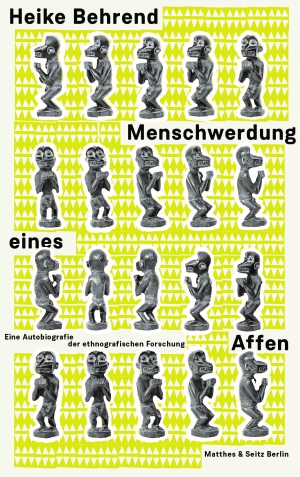Heike Behrend studied ethnology in the politically turbulent 1960s; her first field research took her to the Kenyan Tugen Mountains in the late 1970s; in the mid-1980s she set out on the trail of the Holy Spirit movement in northern Uganda. During the AIDS epidemic, she worked through the Catholic Church in western Uganda, and finally, on the Kenyan coast, she researched the local practices of street photographers and photo studios. This autobiography of ethnographic research does not tell a heroic success story, but rather reports on what is usually excluded in traditional ethnographies - the unheroic entanglements and cultural misunderstandings, the conflicts and situations of failure in foreign countries. This book thus invites a frank look at ethnology as a poetics of social relations. In the unflattering names - „monkey,“ „fool,“ or „cannibal“ - given to the ethnologist in Africa, she is confronted with foreign experience of foreign countries and must ask herself what truth these names express, what colonial history they tell, and what criticism they make of her person and work. With her report on four ethnographic research projects in Kenya and Uganda over a period of almost fifty years, Heike Behrend also reflects on the specialist history of ethnology and the changes in the power relations between the researchers and the explored, which she experiences first-hand.
Awards
Prize of the Leipzig Book Fair 2021
Nominated for the German Prize for Non-Fiction 2021
#1 of the best non fiction books of 2020 of the newspaper Die Zeit
Sample translation
English sample available
Heike Behrend, born in Stralsund in 1947, studied ethnology and religious studies in Munich, Vienna and Berlin. She worked ethnographically, especially in East Africa, taught at various universities in Germany and abroad and lives in Berlin.
"Jumping to the top of the best list is ethnologist Heike Behrend, whose look at our colonial self-image is shattering." Deutschland Kultur







